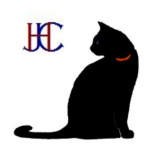ResMed says much the same as Fisher Paykel and recommends a full face mask as a solution: http://www.resmed.com/int/clinicians/co ... clinicians
I don't know the answer to your question, but to me it seems that when I am conscious of it, it occurs on exhale. It then seems the air takes the path of least resistance and exits through the mouth. Once this condition is set up, pressure from the cpap also exits through the mouth and therapy suffers. I think one can prevent this by holding the tongue in the proper position - as if one is making a "K" sound. Many here have professed to have "learned" to keep their tongues in a position which prevent this from happening. I have not been able to achieve this. I suffer from mouth/throat leaks although I am not a mouth breather when awake and I don't have any any nasal abnormalities. My solution is a full face mask. I do not think additional pressure will overcome the problem - perhaps it would make it worse.
New (?) Phenomenum
- Jay Aitchsee
- Posts: 2936
- Joined: Sun May 22, 2011 12:47 pm
- Location: Southwest Florida
Re: New (?) Phenomenum
_________________
| Mask: AirFit™ P10 Nasal Pillow CPAP Mask with Headgear |
| Additional Comments: S9 Auto, P10 mask, P=7.0, EPR3, ResScan 5.3, SleepyHead V1.B2, Windows 10, ZEO, CMS50F, Infrared Video |
Re: New (?) Phenomenum
Once air gets into the mouth, I'm no longer interested.Jay Aitchsee wrote:ResMed says much the same as Fisher Paykel and recommends a full face mask as a solution: http://www.resmed.com/int/clinicians/co ... clinicians
I don't know the answer to your question, but to me it seems that when I am conscious of it, it occurs on exhale. It then seems the air takes the path of least resistance and exits through the mouth. Once this condition is set up, pressure from the cpap also exits through the mouth and therapy suffers.
My question is, why is the pressure from the CPAP not forcing the airway open enough to admit all the air?
I don't recall this happening when I was one mmH2O (cm??) lower? Could it be that the old setting was opening the airway as much as possible and now -- at the higher setting -- there is "excess" air which bleeds into the mouth?
-----------
“Holding on to anger is like grasping a hot coal with the intent of throwing it at someone else; YOU are the one who gets burned.”
“Holding on to anger is like grasping a hot coal with the intent of throwing it at someone else; YOU are the one who gets burned.”
- Jay Aitchsee
- Posts: 2936
- Joined: Sun May 22, 2011 12:47 pm
- Location: Southwest Florida
Re: New (?) Phenomenum
pikov22, this is an interesting question. Up until now, I would have said that the tongue determines whether we breathe through our mouth or nose. That's what it seems to me when I breathe. However, I've not been able to document this. I did however, find this:
In any event, what I presume happens when air escapes from the mouth is that the area between the tongue and the soft palate is open as though one were mouth breathing and pressure is lost. I believe an obstruction could still exist below this point (toward the lung), but since pressure is being lost through the mouth the obstruction might not be resolved by cpap and therapy could be lost. A full face mask should prevent this from occurring.
I can see an argument for increased nasal pressure exacerbating the situation as you suggest, forcing the area between the tongue and soft palate open and pressure being lost through the mouth, especially as exhalation begins, or inhalation stops.
Now, I know you like only facts and this is largely supposition on my part, maybe someone with a little more knowledge of anatomy, respiration, and OSA will see this and provide us with a more definitive description of what is occurring. I am curious, too.
J
Which implies by omission, the tongue plays a more passive role.http://www.ncbi.nlm.nih.gov/pmc/articles/PMC2749282/
Coordination of Mastication, Swallowing and Breathing
The soft palate has an important role in determining the route of respiration [9]. During nasal breathing, the soft palate is lowered and apposed to the tongue, dilating the velopharyngeal isthmus (retro-palatal airway) [17]. During oral breathing, in contrast, the soft palate elevates to open the fauces, separating the nasal cavity from the pharyngeal airway [18]. Complex activities of several palatal muscles determine the position of the palate for the route of respiration. The two main muscles for determining palatal position are the levator veli palatini and the palatoglossus. Both muscles are active during oral and nasal breathing. However, the levator palatini is more active during oral breathing and the palatoglossus during nasal breathing [19].
In any event, what I presume happens when air escapes from the mouth is that the area between the tongue and the soft palate is open as though one were mouth breathing and pressure is lost. I believe an obstruction could still exist below this point (toward the lung), but since pressure is being lost through the mouth the obstruction might not be resolved by cpap and therapy could be lost. A full face mask should prevent this from occurring.
I can see an argument for increased nasal pressure exacerbating the situation as you suggest, forcing the area between the tongue and soft palate open and pressure being lost through the mouth, especially as exhalation begins, or inhalation stops.
Now, I know you like only facts and this is largely supposition on my part, maybe someone with a little more knowledge of anatomy, respiration, and OSA will see this and provide us with a more definitive description of what is occurring. I am curious, too.
J
_________________
| Mask: AirFit™ P10 Nasal Pillow CPAP Mask with Headgear |
| Additional Comments: S9 Auto, P10 mask, P=7.0, EPR3, ResScan 5.3, SleepyHead V1.B2, Windows 10, ZEO, CMS50F, Infrared Video |
- chunkyfrog
- Posts: 34545
- Joined: Mon Jul 12, 2010 5:10 pm
- Location: Nowhere special--this year in particular.
Re: New (?) Phenomenum
I just figure my muscles relax, allowing my jaw to drop, tongue to slip out of (or in) the way,
and my lips to become as flexible as gramma's batwings. It just happens; since I'm asleep, I can't control it.
and my lips to become as flexible as gramma's batwings. It just happens; since I'm asleep, I can't control it.
_________________
| Mask: AirFit™ P10 For Her Nasal Pillow CPAP Mask with Headgear |
| Additional Comments: Airsense 10 Autoset for Her |
Re: New (?) Phenomenum
In any event, what I presume happens when air escapes from the mouth is that the area between the tongue and the soft palate is open as though one were mouth breathing and pressure is lost. I believe an obstruction could still exist below this point (toward the lung), but since pressure is being lost through the mouth the obstruction might not be resolved by cpap and therapy could be lost. A full face mask should prevent this from occurring.Jay Aitchsee wrote:pikov22, this is an interesting question. Up until now, I would have said that the tongue determines whether we breathe through our mouth or nose. That's what it seems to me when I breathe. However, I've not been able to document this. I did however, find this:
http://www.ncbi.nlm.nih.gov/pmc/articles/PMC2749282/
Coordination of Mastication, Swallowing and Breathing
It only just dawned on me, dumbass that I am, that this occurs on exhalation, not inhalation! So it has nothing to do with the airway or all those Latin thingies in that article. Back to the drawing board!!!
-----------
“Holding on to anger is like grasping a hot coal with the intent of throwing it at someone else; YOU are the one who gets burned.”
“Holding on to anger is like grasping a hot coal with the intent of throwing it at someone else; YOU are the one who gets burned.”










